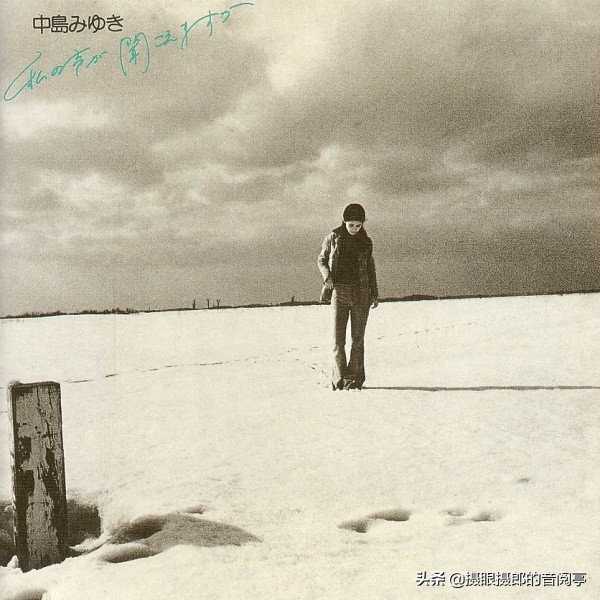In April 1976, Miyuki Yingu,"Can you hear my voice?" (A self-indgoct voice sound? ) 。
Miyuki Nakajima (中島美雪, Nakajima, born in February 1952 in Sapporo, Hokkaido, Japan) is a Japanese singer, songwriter, music composer, radio host, writer and actress. Since her debut, she has created more than 500 songs, of which about seventy or eighty have been adapted by the Hong Kong and Taiwan music scenes Chinese words for cover singing, and the popularity is full, singing so far, for example, Teresa Teng "Walking the Road of Life", Faye Wong "Easy to Hurt Woman", Chow Hui Min "Favorite", Ren Xianqi "Sad Pacific", Fan Weiqi "The First Dream", etc., The Internet forum has said that she supported half of the Hong Kong entertainment circle, perhaps a little exaggerated, of course, Hong Kong also has a small number of original musicians, it should be said that she changed the Japanese women in the Chinese music scene, Maybe it's more appropriate.

In 1972, Miyuki Nakajima, who was still on her university campus, began to write songs in her spare time and participate in campus competitions, the "Japan National Song and Music Festival", and was praised for her song "I Often Think This Way". However, stimulated by the question "The Meaning of Being a Singer" by the Japanese poet Shuntaro Tanigawa, a judge at the time, he refused the opportunity to make his debut.
In May 1975, she participated in the 9th Pop Song Contest organized by the Yamaha Music Promotion Association, also known as Popu Con in Japan, and won the prize for the song "Wounded Wing". In November, for the song "Time", he won a gold medal at the World Music Festival.
1975.09.25 发售单 song "Thistle's Larabai" (蓟ka mother-in-law daughter 摇篮), official departure singer life. On December 21, the second song "Time" was held at the 2nd.
In Japan, this classic song has been covered by many well-known singers, from the 70s, 80s, and 90s, spanning the new century to the present, including Ken Naoko, Hiromi Iwasaki, Junko Shibata, Hideaki Tokunaga, Yakushi Maru Hiroko, Rimi Natsukawa, Shizuka Kudo, Hideki Nishijo, Yoshiyuki Kuwata, Atsuharu Iwasawa, Yuhito Kitagawa and others. In September 2003, Universal Records released the album "Yourself... Myself invited 11 European and American singers to re-sing Miyuki Nakajima's songs, including "Time" sung by Al Jarreau. In June 2008, New Zealand singer Hayley Westenra also included time on her album Hayley Westenra Sings Japanese Songs, released in Japan. In 2010, Fuji TV's Taiwan celebration drama "The History of My Family" also used this "Era" as the theme song, and the melody of "Time" has not been interrupted, which shows the deep influence of this song.
Chinese music covers of Time include Ye Qianwen's Time (May 1995 album True Heart) and Li Yijun's Rebirth (June 2001 album Rebirth).
On April 25, 1976, her debut album "Private Voice" was released, "Private Voice", "Can You Hear My Voice" ("Can You Hear My Voice"), which contains 12 songs, and it is unbelievable that all the songs are arranged by Miyuki Nakajima, which is rare for a newcomer in the music world, and also reveals her exuberant creativity.
1. Abenaka
(Steep Slope)
2. My Kind Man
(My Gentle Man)
3. An Incredible Skull
(Unbelievable moments)
4. Bogey Bobby's Red Rose
(Bobby-Bobby-Red Rose)
5. It's the sea.
(The Sea)
6. Miss Thistle's Larabai
(Lullaby of the Flower Girl)
7. Let's dance
(Wild Dance)
8. Alone
(Play alone)
9. There's always something sad
(There are always sad things)
10. Sing to You
(Dedicate the song to you)
11. Letter to Nagisa
(Letter from the Seaside)
12. Era
(Era)